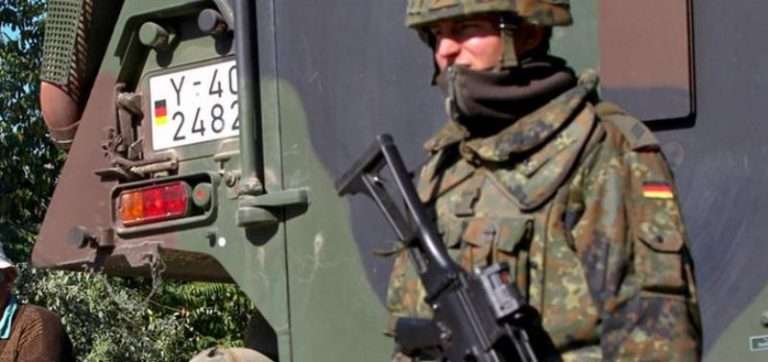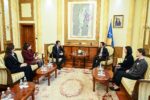After a half-hour debate, German deputies from various parties presented arguments for and against extending the Bundeswehr’s mandate in Kosovo. On Thursday, June 26, the Bundestag in Berlin decided that the Bundeswehr mission, as part of the international KFOR force, will continue for another 12 months. The mandate extension was approved with 391 votes in favor, 189 against, and only two abstentions.
Bundestag Debate Highlights Diverse Views
“The future of the Western Balkans should not be reduced solely to security issues,” said conservative deputy Johannes Volkmann (CDU/CSU), speaking for the first time in parliament. Volkmann, grandson of the renowned German Chancellor Helmut Kohl, who oversaw Germany’s historic reunification in 1990, called for a bolder approach to Kosovo: “How can new generations in Kosovo feel when the promise of EU integration given in Thessaloniki in 2003 has still not been realized?” He urged the EU to finally fully recognize Kosovo and admit it to the Council of Europe.
Stefan Keuter, the representative of the far-right AfD, the largest opposition party in the Bundestag, rejected the entire logic of the mission in Kosovo. “This is not our conflict. This mission has brought nothing concrete… With that money, we could feed hungry children in Yemen or Sudan.”
Another critical voice came from The Left, where deputy Gökay Akbulut called the KFOR mission a “frozen military solution without perspective.” “Kosovo is still one of the poorest countries in Europe. We don’t need more troops, but schools, hospitals, and jobs.”
From the center of the political spectrum, the SPD and The Greens defended the decision to extend the mandate:
“Our soldiers help build a democratic and multi-ethnic society,” said Minister Nancy Faeser (SPD), while Niklas Wagner (The Greens) called KFOR an “anchor of stability,” and warned: “If the USA withdraws, Europe must be ready to take responsibility – otherwise authoritarian actors will fill the vacuum.”
Role of German Soldiers within KFOR
Up to 400 German soldiers will again be deployed in Kosovo. Their task is to contribute to maintaining security, public order, and efforts to build a stable, democratic, and multi-ethnic state. Germany also clearly expresses support for the transformation of the Kosovo Security Force (KSF) into a modern and democratically controlled structure – as preparation for integration into NATO and the EU.
After the end of the war in 1999, Germany was one of the largest contributors to the KFOR mission, with up to 6,000 soldiers deployed in Kosovo. The presence remained at high levels until 2004, when, after inter-ethnic unrest, it was reinforced again with 600 additional troops. From 2011, a gradual reduction began, falling to less than 1,000 soldiers and closing the military base in Prizren in 2018.
At the end of 2022, Germany had only about 80 soldiers on the ground. But with the increase in tensions in northern Kosovo and the departure of the Austrian contingent, Berlin reacted: an additional company was sent in April 2024, and today the Bundestag has mandated up to 400 troops – a symbolic return of attention to security in the region.
The military mission in Kosovo costs Germany 38.9 million euros.







